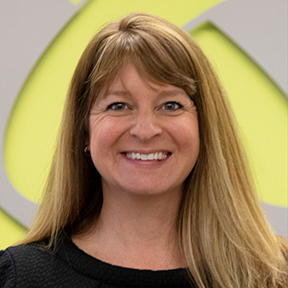If we learn anything from a pandemic, it’s that preparedness matters.

The unexpected is somewhat inevitable, especially when it comes to health care. Sooner or later, no matter how healthy, active and fit someone is, a large bill is likely to come their way. In the absence of a financial safety net, health care costs can be catastrophic—even when the patient has health insurance.
That’s why HR and benefits professionals are so keen to ensure employees are saving for that day, using the powerful pre-tax accounts that help people manage their costs today and potentially stockpile for the future.
Even before COVID-19, employees’ success with saving was uneven, and this is exacerbated by the pandemic. In the face of COVID-19, it’s the youngest employees taking up the challenge with unmitigated success while their older colleagues are losing ground.
The experience of employees during last year’s annual enrollment in the fall is different than what employees with a mid-year annual enrollment are telling us.
When asked whether their rainy day fund would cover a large ER bill, employees using Businessolver’s MyChoice™ Recommendation Engine—our proprietary decision guidance tool--were more likely to indicate they would “get soaked” mid-COVID than pre-COVID (43% versus 40%).
However, the difference in preparedness among generations was significant and is worth noting.
As a group, Gen Z is already keyed into financial preparedness. They see the importance of benefits and appreciate the value of saving, favoring traditional benefits like health care coverage and retirement accounts over some of the “softer” perks such as free meals and gym memberships.
Regardless of their financial focus, the reality is that Gen Z is just entering the workforce and they earn less on average than older workers, which can make saving harder. According to the Bureau of Labor Statistics, in the second quarter of 2020 employees aged 20 to 24 earned a median $640 per week versus $1,040 for employees between age 25 and 54.
Last fall, just 4% of Gen Z employees indicated their rainy day fund offered “an umbrella” for a large out-of-pocket health care expense. This isn’t surprising because these employees hadn’t had much time to amass the savings necessary to fund a large health care cost.
However, Gen Z seems to be taking the money they might have spent on dinners out, movies or other activities that have not been available and plowing those dollars into padding their health care savings.
The proof? In contrast to the 4% during last fall’s annual enrollment, 14% of Gen Z employees enrolling mid-year reported they were prepared. While this is still less than 1 in 5 employees in this youngest generation in the workforce, it still represents a substantial 250% increase.
Older workers, with their larger earnings and more time to save should theoretically be better prepared. However, we see just the opposite.
In the fall, prior to COVID-19, 35% of Boomer employees indicated they had money in their rainy day fund for a large ER cost. By the time employees in this same cohort enrolled mid-year, that number had dropped to 25%, a decrease of almost 30%.
This erosion of preparedness could be the result of Boomers supporting children and grandchildren in the face of a pandemic. Even before COVID-19, this older generation had been consistently offering financial help to their kids, sometimes at the expense of their own retirement saving. As the economy contracted and Americans lost jobs, Boomers may be helping their children stay afloat, potentially spending down their own savings in the process.
Saving for health care is important for employees of all ages, but the impact of COVID-19 seems to be different depending on generation. While Gen Z is willing and able to save more to hedge against large out-of-pocket costs, older employees seem to be focused elsewhere and, as a result, are more likely to be negatively impacted by health care costs.
Employers can help by understanding and focusing on the current financial challenges that COVID-19 is creating for employees and helping them better use the benefits available to them to save appropriately. Encouraging the use of FSAs and HSAs, as well as short-term saving plans to create and fund emergency accounts can give employees both peace of mind and the level of financial preparedness necessary to overcome the potential impact of unforeseen health care expenses.
Find more insights about the financial effects of COVID-19 on employees’ financial situation in our special report— Funding the Unexpected: Who Is Saving and Who is Losing Financial Ground in the Midst of a Pandemic, part of our Benefits Insights series.



